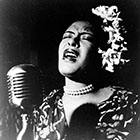
The Perfectionist Tradition
The African American perfectionists offered “faith” instead of “hope”—emphasizing the struggle to realize a vision of justice rather than passive assurance that it would prevail.


The African American perfectionists offered “faith” instead of “hope”—emphasizing the struggle to realize a vision of justice rather than passive assurance that it would prevail.
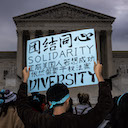
The Supreme Court is poised to overturn race-based affirmative action. But preferences based on socioeconomic disadvantage—which are both politically popular and legally sound—could produce similarly high levels of diversity.
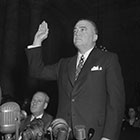
For forty-eight years, American presidents came and went, but J. Edgar Hoover remained as the powerful director of the FBI.

Throughout the United States, racial separation remains a common feature of collective life. The consequences are significant for left political organizing aimed at building a multiracial working-class majority.
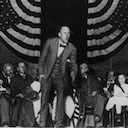
If there’s a lesson to be derived from Gary Dorrien’s account of American socialism, it’s that the movement’s open participation in and with the broad democratic left benefits the socialist cause.

In Reconsidering Reparations, Olúfẹ́mi O. Táíwò makes the case for a political project with a global scope.

A prolific writer and researcher for seven decades, Miller’s greatest talent was putting that knowledge to work on behalf of activist groups in the United States and around the world.
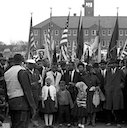
To honor the 1965 Selma to Montgomery Voting Rights March, we must continue the work it started.
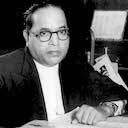
Isabel Wilkerson’s account of racial oppression elides crucial differences between social inequality in South Asia and the United States—differences with real implications for emancipatory political projects.
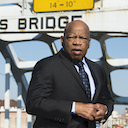
After the civil rights movement, John Lewis moved from protest to politics. But he remained optimistic about the Black freedom struggles of the twenty-first century.

As millions rise up against police violence, a white father and his Black son discuss racism, resistance, and empathy.
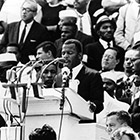
In a moment when Black Lives Matter has succeeded in bringing longstanding police abuses to public attention, Lewis’s legacy has never been more visible.
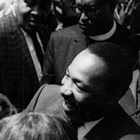
In his unstinting backing of unions, Martin Luther King, Jr. made clear that racism was rooted in a long and stubborn history of class injustice.
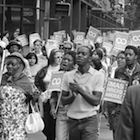
Those who invoke Martin Luther King to criticize Black Lives Matter misunderstand the life and legacy of America’s favorite civil rights leader.
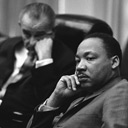
The success of Ava DuVernay’s Oscar-nominated film Selma has created the impression that the Selma-to-Montgomery voting rights march was the defining civil rights story of 1965. As a result, we haven’t paid the attention we should to the event with which Selma …